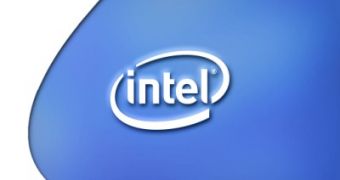Intel is planning to start shipping its new generation of mobile pseudo-computers within 60 days. The news was broken by Anand Chandrasehker, Intel's Senior Vice President and General Manager of the Ultra Mobility Group during the first day of Intel Developer Forum in Shanghai.
According to Chandrasehker, the chip manufacturer has already started shipping its miniature products to some selected customers. Intel has even demonstrated during yesterday's conference a clamshell mobile Internet device, but its specifications are still unknown.
"Mix in the incredible innovation coming from our fellow device makers and software vendors, and we will change the way consumers will come to know and access the World Wide Web. These forthcoming MIDs, and some incredible longer-term plans our customers are sharing with us, will show how small devices can deliver a big Internet experience."
Chandrasehker also said that Intel's upcoming Atom chip will be able not only to deliver significant performance boosts, but also to maintain compatibility with the industry standards.
The chip is able to offer functionalities where mobile products using ARM-based processors fail. For instance, the number of webpage errors on ARM-based chips is astounding. "The Internet was developed on IA, and that's why we have great compatibility," explained Chandrasehker.
While surfing the web using a currently existing handheld device is extremely uncomfortable and unpleasant, Intel's upcoming generations of mobile Internet devices will fix this issue. Chandrasehker also said that a study conducted in Japan revealed that 88 percent of the handheld-based web-surfers are displeased with the experience and try to avoid it whenever this is possible.
The Atom chip is not only fully compatible with the web standards, but it is also energy-efficient, which would result in prolonged surfing sessions without the need of additional power sources.
The IDF demonstration revealed than, when idle, the MID would draw an insignificant amount of power. When in use (loading web-pages), the power consumption peaks, in order to return to a low-power mode as soon as the operation is complete.
"The Intel Atom processor is an incredibly lazy processor," claimed Intel's VP about the chip's power requirements.
Another interesting demonstration of the chip's power involved running the much-hyped game Half-Life 2 on a Centrino Atom CRB platform. The processor did not choke, and managed to deliver fast enough speeds for a decent gaming experience.

 14 DAY TRIAL //
14 DAY TRIAL //